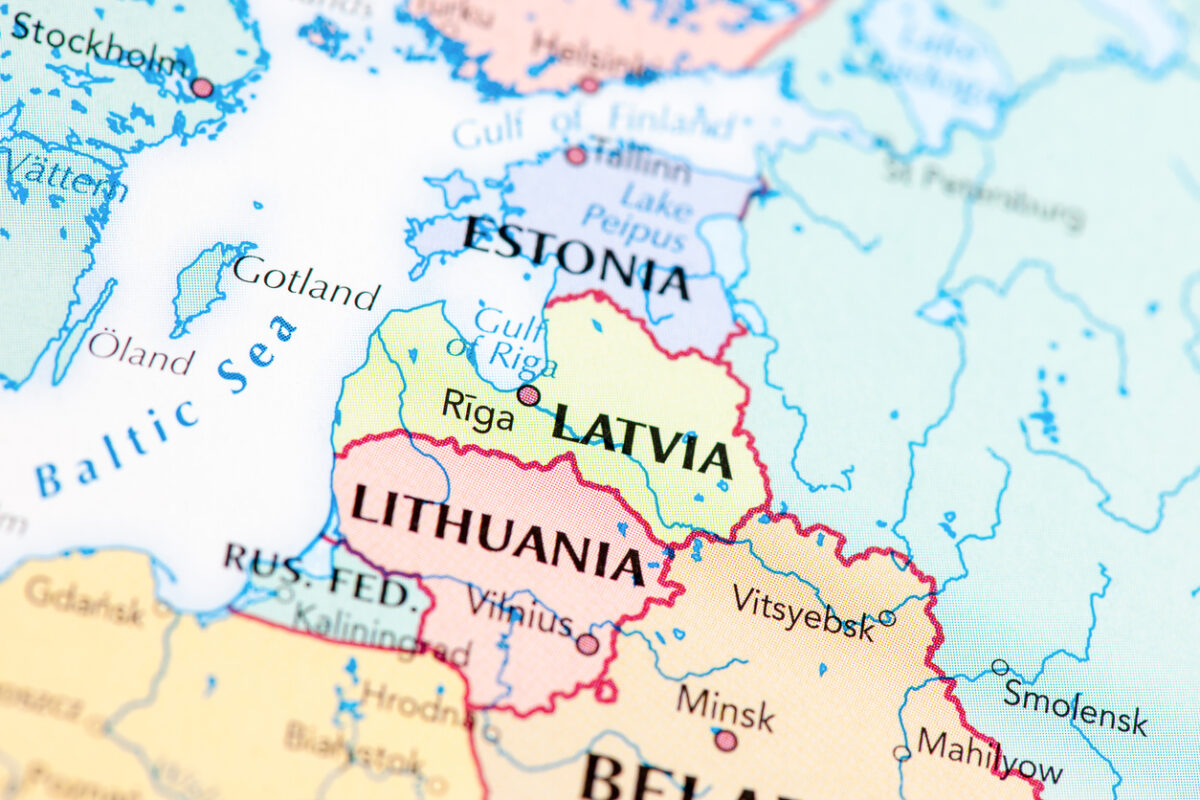The pandemic-induced shift from in-store to online shopping has opened a new age in e-commerce and the Baltic region is no exception: according to Statista, e-commerce revenues in the upcoming year are expected to grow 13.66 per cent in Estonia, 14.80 per cent in Latvia, and 18.45 per cent in Lithuania.
In response to the ongoing rise in demand, the region often dubbed as Europe’s fintech hub was quick to respond with innovative local payment solutions highlighted in an extensive Paypers European payments industry study commissioned by Deloitte, which featured an analysis of the emerging solutions in the Baltic region.
According to data from Lithuanian, Latvian, and Estonian statistical institutions, more than half of the population in the region aged 16-74 made a purchase online at least once a month during a 12 month period. Moreover, data shows a growing number of Baltic residents shopping on international merchant websites: in 2021 approximately 50 per cent of Estonian online shoppers made cross-border purchases.
The growth in the popularity of e-commerce in the region has fueled the creation of new local payment methods to meet the needs of local consumers, who are keen on cross-border shopping. Many of the global online merchant’s paying options still revolve around credit cards, a fact that does not correlate with credit card penetration levels in the Baltic states with less than 30 per cent in Estonia and approximately 16 per cent in Latvia and Lithuania. The absence of preferred payment options results in digital shopping cart abandonment—as much as 60 per cent of Europeans abandon their cart if a favourite payment method is not presented to them at checkout.
According to the Paypers report, 65 per cent of Baltic consumers prefer to pay by bank transfer, allowing most local payment providers to tailor their products around online banking. Alongside strong backing of all three local central banks, the environment is there to embrace the PSD2 and bring innovation using open banking — Lithuania currently leads the way in licensed payment and e-money institutions across Continental Europe. Banking is an example local payment option that connects virtually all of the leading financial institutions within the region—including both traditional and challenger banks—thus helping Baltic shoppers make cross-border payments in a convenient and undisrupted way.
“We’ve partnered up with almost every bank in the Baltics, to give consumers the opportunity to shop globally by providing them with access to international vendors — all through the payment means they already use and trust,” explains Frank Breuss, CEO, and co-founder of Nikulipe, contributor to the Paypers industry report as Baltic regional expert. “Region-specific payment solutions can open up a number of new opportunities not only for Baltic consumers but also for international merchants, who are looking to enter new and emerging markets.”
Breuss adds that offering local alternative payment options will provide shoppers with enhanced shopping choices, free from geographical restraints and will most likely lead to a more competitive price landscape as shoppers will have the opportunity not only to browse global merchant websites, but actually make purchases and pay for products and services using familiar and trusted payment alternatives.
Overall, with the growing demand for cross-border shopping, LPM solutions provide a long list of advantages such as lower abandoned online shopping carts and an improved customer experience that could further support the e-commerce growth in the region.
“The Baltic consumer has transitioned from cash and card to using online banking as the preferred payment medium when shopping online. This allows LPM providers to bring local solutions with native language checkouts and payment options consumers recognise,” states Breuss. “Online banking transactions also solve some of the issues that card transactions had — such as eliminating chargebacks and increasing transaction speed.”
Image and article originally from thefintechtimes.com. Read the original article here.

